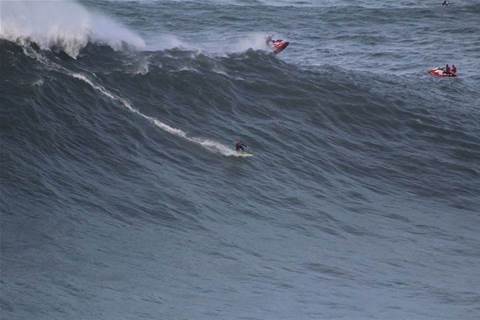The Australian Federal Police believe that only a "catastrophic attack" by hackers on the national information infrastructure or a Big-Four bank brought to the brink of collapse will catalyse cross-border cybercrime co-operation.
The national manager of the Australian Federal Police high tech crime centre, Neil Gaughan, told an e-security panel in Sydney today in Sydney that the borderlessness of electronic crime was a problem for law enforcement.
And he said local agencies had only slight involvement in cybercrime cases.
"As the internet evolved, unfortunately the legislation hasn't kept pace with that rate of change," Gaughan told delegates to the event organised by internet security company F-Secure.
"The current way law enforcement agencies deal with each other internationally is a ‘who knows who in the zoo' approach of having personal contacts overseas.
"To get information from an overseas agency, we have to go through a process called a mutual assistance request, which is slow, cumbersome and to be blunt doesn't service our needs in the current environment."
He said the Federal Attorney-General's departnent was working with unnamed governments overseas to alter the treaty regime "to enable [AFP] to obtain the information we need in real-time".
But he admitted it was impossible to achieve a treaty that spanned the globe.
"It's an issue for all governments but it's going to take a rather catastrophic event before resourcing is put that way," Gaughan said.
"We need a tsunami of internet activity before we'll see a change in mindset. Until the community feels impacted, there's not going to be an expectation that the Government needs to respond to [the threat]."
The panel, led by e-security commentator Patrick Gray, likened the activity that was needed to jolt governments and the public into action to a cyber-September 11 or "digital Pearl Harbour".
Gaughan said law enforcement activity had to be supplemented by education and taking down malicious sites.
F-Secure chief research officer Mikko Hypponen said security was a "complicated area".
"It's fast-moving, the enemy isn't stupid and that means it's hard to protect yourself as an end-user," Hypponen said.
Patrick Gray is a member of the SC Magazine Australia advisory panel and was a judge at this year's SC Awards presented by AusCERT.







.png&h=142&w=230&c=1&s=1)




.jpg&w=100&c=1&s=0)
_(8).jpg&w=100&c=1&s=0)











